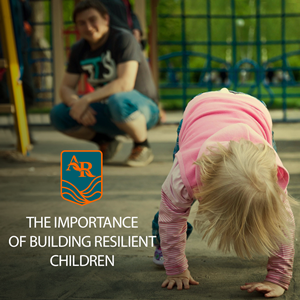
Resilience is one of the hardest, yet most important traits to develop in life. We will all face adversity throughout our lifetime with life’s inevitable hurdles popping up when we least expect them. When it comes to long term success, resilience is perhaps the most useful tool we can put in our childrens’ repertoire of skills.
Resilience promotes independence.
A large part of resiliency is being able to recover from setbacks with or without the help of others. Resilience and independence go hand in hand. Both traits feed off one another to create a fortress for success. When children learn to identify and control their emotions while applying critical thinking skills, they’re able to analyze obstacles and determine the best course of action. Even the biggest of roadblocks become digestible with children who are mentally and emotionally equipped to tackle them.
Resilience improves decision making and critical thinking skills.
Much of life is dependent upon the decisions we make. It’s no secret that we don’t always make the best choices. It’s simply a fact of life that we all have to learn through trial and error. However, when children have the foundations for resilience, they’re able to recover from their adverse decisions. Rather than being halted in their pursuits, resilient children use these setbacks as learning opportunities to further their knowledge and increase their wisdom.
The best leaders have the best resilience.
Leaders share the trait of resilience. The best leaders don’t succumb to setbacks or negativity. Rather than being consumed with negative results and accepting them as is, leaders find innovative ways to fix the problem and develop a solution. Resilient children have the power to become resilient leaders who have the power to determine their own path in life.
Resilient children have better patience and collaboration skills.
Being resilient often requires extensive patience and cooperation. When plans go awry, resilient people remain in control of their emotions while they seek to find an alternative solution. We must often use quick thinking and the resources within our reach to implement new ideas. These traits lend themselves to better collaboration skills and resourcefulness, which enable children to work well in groups in order to accomplish tasks.
Resilience builds the foundations for a successful life.
Learning to be resilient isn’t taught overnight. Many of us will continue to build our resilience throughout the duration of our lifetime. Working diligently to help children learn to become resilient will give them better outcomes for the future. This holds true for all aspects of their lives. The foundations we help them build today will remain in place throughout their entire life. The small hurdles we help them learn to overcome today will help them move mountains in the future.
